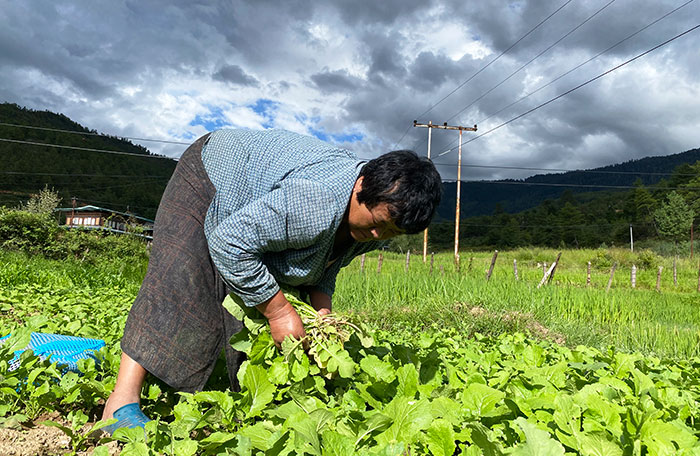Phub Dem | Paro
Around this time in Paro, farmers sell farm produce and begin growing winter crops. In Dogar Gewog, August is the peak season to grow mustard.
This age-old tradition had almost disappeared. But then, this year, a youth group is planning to grow mustard. The aim is to reduce import of cooking oil.
The plan hasn’t taken off though. The nation-wide lockdown has rendered farm work impossible.
Dogar Gup Lhap Tshering said that the farmers were worried, as it was time to sow the seeds after potato and cabbage harvest. “It’s getting late.”
Shortage of farmhands and machinery is another problem.
While farming is easy for most people in Paro, others like Passang from Dawakha have to walk hours to get to their fields.
Lhap Tshering said that the gewog administration was exploring ways to facilitate the farming activities while adhering to the health protocols.
Kinzang from Geptay is of the view that if the lockdown extends and farmers aren’t allowed in the field, rice production would take a hit.
In Naja gewog, cabbage has no market and is rotting.
Naja Gup Kinley Wangdi said that even though the government was helping the farmers to market cabbage and other vegetables, farmers had no option with export restriction still on.
Since the beginning of lockdown, the gewog has supplied about 12 trucks of cabbage to different dzongkhags through the dzongkhag agriculture office.
If it weren’t for the pandemic, he said that the gewog would have dispatched more than 30 trucks of cabbage daily.
However, to farmers’ relief, the foreign affairs’ minister Dr Tandi Dorji said that the government has decided to allow movement of individuals within their gewogs across the country, yesterday on BBS.
He said that the farmers in rural areas could attend to their farms and livestock, but individuals were restricted to cross other gewogs and the thromde regions.
The local government officials will monitor the situation.


